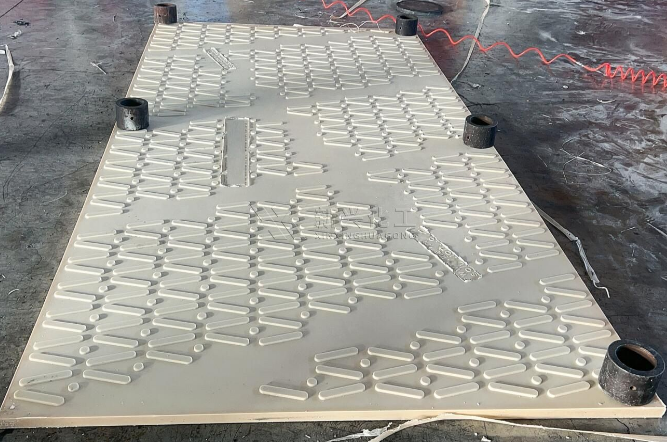Composite Road Plate vs. Steel Road Plate - Which is Best?
When it comes to road construction and maintenance, selecting the right type of road plate is crucial. With options like composite road plates and steel road plates, understanding their differences can significantly impact project efficiency and safety.
What are Composite Plates?
Composite road plates are made from a blend of materials, typically including fiberglass and resin. These plates are known for their lightweight nature and high strength-to-weight ratio, making them ideal for temporary roadways and construction sites where ease of handling is essential.
What are Steel Road Plates?
Steel road plates, on the other hand, are robust metal sheets designed to bear heavy loads. They are commonly used in utility work and road repairs, offering durability and stability under pressure.
Durability Comparison
In terms of durability, steel plates have the upper hand when it comes to withstanding extreme conditions. They are resistant to impacts and can handle heavy machinery without deforming. Composite road plates, while strong, may not hold up as well under intense pressure over extended periods, making them more suitable for temporary applications.
Cost Analysis
Cost is another critical factor. Initially, composite road plates tend to be more expensive than their steel counterparts. However, their lightweight nature can reduce transportation costs. Additionally, composite plates often require less maintenance over time, which can offset their higher initial price.
Weight Considerations
Weight plays a significant role in installation and transportation. Composite road plates are significantly lighter than steel, making them easier to handle and install. This can save time and labor costs during setup. Conversely, the weight of steel plates can complicate transport and require more machinery for installation.
Noise Levels
One major advantage of composite road plates is their ability to reduce noise. Steel plates can create a significant amount of noise when vehicles pass over them, which can be disruptive in urban areas. Composite plates, however, offer a quieter experience, making them more suitable for residential or noise-sensitive environments.
Applications of Composite Road Plates
Composite road plates are often used in temporary roadways, pedestrian walkways, and areas where a lighter, noise-reducing option is needed. They excel in settings where ease of transport and installation is essential.
Applications of Steel Road Plates
Steel road plates are frequently employed in construction zones, road repairs, and utility maintenance. Their robustness makes them the go-to choice for heavy-duty applications.
Environmental Impact
When considering environmental impact, composite plates generally have an edge due to their recyclability. Steel, while also recyclable, has a larger carbon footprint in its production phase.
User Safety
Safety is paramount in any construction environment. Composite plates often feature slip-resistant surfaces, enhancing safety for pedestrians and workers alike. Steel plates, while stable, may not offer the same level of grip.
Installation and Handling
Composite road plates are easier to install due to their lightweight nature, requiring less machinery and fewer personnel. Steel plates, while durable, demand more resources for installation.
Conclusion
In summary, both composite and steel road plates have their advantages and disadvantages. If you prioritize lightweight handling and noise reduction, composite plates are the way to go. However, for heavy-duty, long-term applications, steel plates may be more suitable. Ultimately, the best choice depends on your specific needs and circumstances.

Comments
Post a Comment